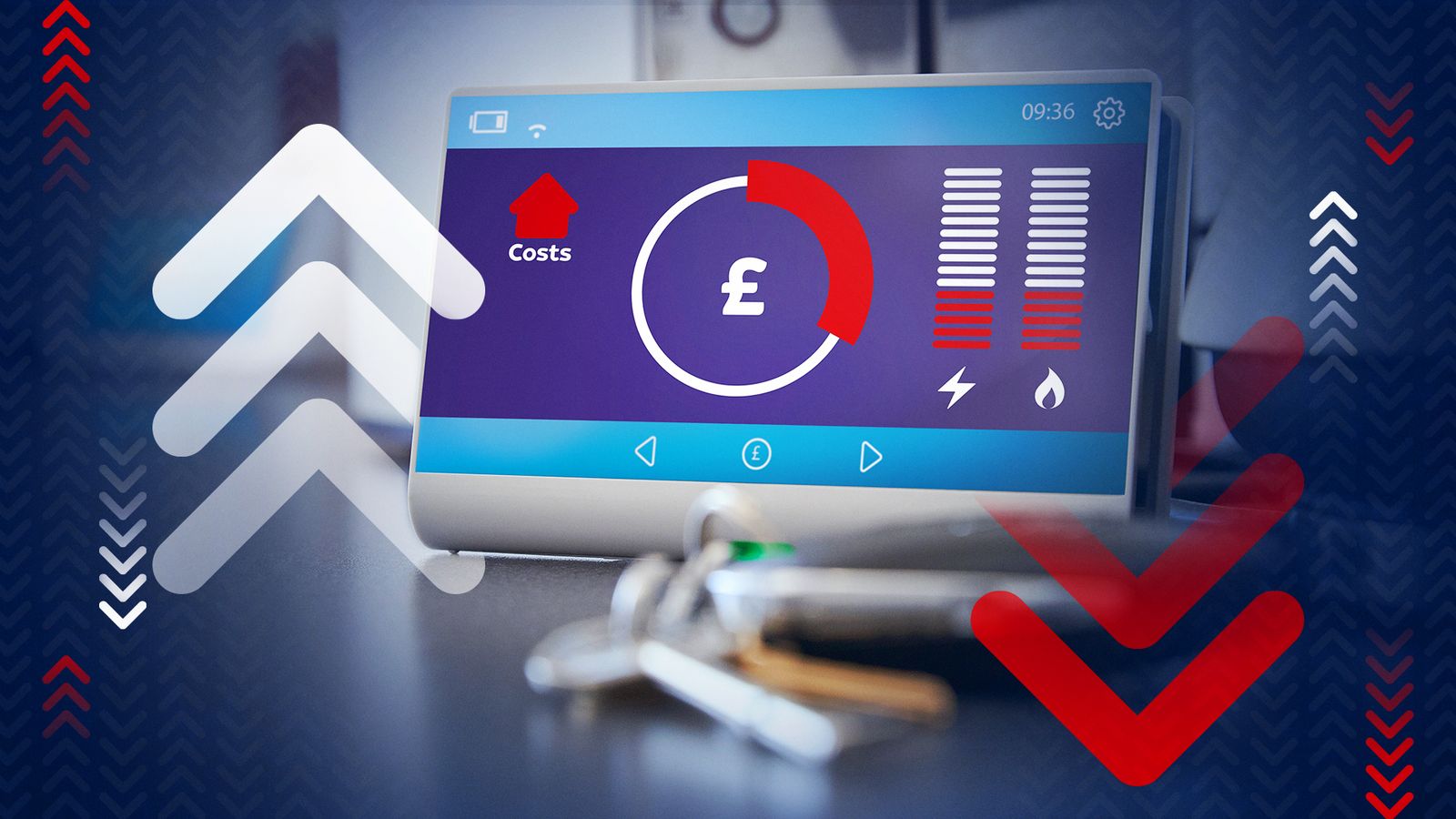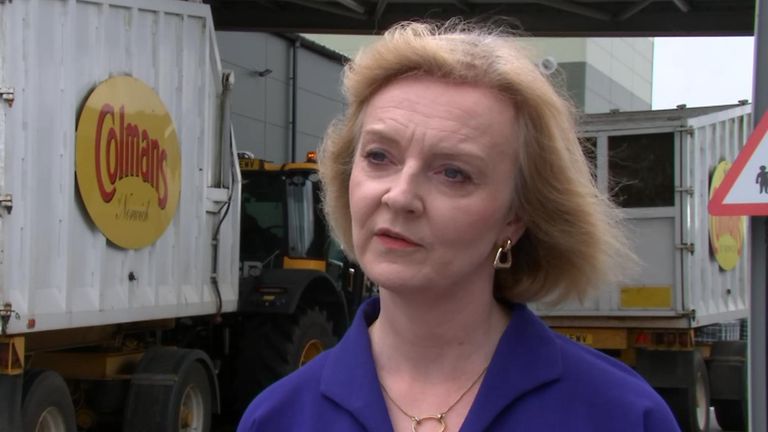A third of households are already struggling to pay their energy bills, an exclusive poll for Sky News has found.
This is without the additional pain from the rise in the energy price cap, which will be announced on Friday and is expected to push up bills by a further 80% from October.
According to the poll by Ipsos, one in 10 people found it “very difficult” to afford their energy bills over the past three months and two in 10 found it “fairly difficult”.
Ipsos interviewed a representative sample of 2,000 adults aged 18-75 in Great Britain between 22 and 24 August for Sky News.
Households with children and those on lower incomes are the most likely to struggle to stay on top of their electricity and gas payments, according to the poll.
But some people on middle to high incomes are also already having trouble paying. One in four people earning between £35,000 and £54,999 say they have found it difficult to afford their energy bills over the past three months.
Many people are already taking action in response to rising costs.
Almost two in five people have used a price comparison website and more than a third installed a smart meter over the past three months.
More concerningly, 29% of people have used savings to pay an energy bill, 15% missed payments on another household bill, and 14% have borrowed money to make energy payments.
The government has put in place a package of support that includes a £400 energy bill discount for all households, but there is increasing pressure for more to be done ahead of the difficult winter months.
Most people do not have confidence that any of the potential prime ministers can address the cost of living crisis, according to the poll.
Liz Truss, the bookmaker’s favourite for the job, trails Sir Keir Starmer and Rishi Sunak, with only 28% of people saying they trust her to reduce the cost of living.
The foreign secretary has said she prefers tax cuts to handouts, but critics say her plans benefit higher earners more than those on low incomes.
Ms Truss defended her record in government when asked whether she was worried about the poll on Thursday.
She told reporters: “In every job I’ve done in government, I’ve followed through with what I’ve promised.”
She insisted she understood what people are going through due to the cost of living crisis and vowed her first port of call would be to deal with supply issues to bring down energy costs.
She said: “We need a long-term solution. What isn’t right is to have a sticking plaster to deal with the problem for the next six months, but not have a long term solution for Britain’s energy supply.”
So, perhaps unsurprisingly, most households plan to take personal action to deal with rising costs in the next six months.
The most popular responses from respondents were to work more hours in their current job (30%), sell some personal belongings (30%), and take a second job (21%).
How much worse will it get?
The cost of living crisis is expected to worsen considerably over the next year as energy bills rise further.
This is largely because of a hike in the energy price cap, which is expected to push up annual bills for the average household to more than £5,300 by April 2023.
Low-income families are most affected as they spend a larger proportion of their income on energy, but soaring prices mean most households will soon spend a significant chunk of their earnings on electricity and gas.
Professor Jonathan Bradshaw from the Social Policy Research Unit at the University of York says that many middle-income households are now less capable of dealing with rising prices than they were in previous years because of reduced savings and lower real incomes.
“Quite a lot won’t be able to absorb higher energy prices,” he says.
He forecasts that two-thirds of households will be in fuel poverty (spending more than 10% of net equivalised income on energy bills) by the start of next year.
The households that are already struggling the most, families with children, are the most likely to be in fuel poverty by January 2023.
More than nine in 10 couples with four or more children and single parents with two or more children will spend over 10% of their income on energy, according to the University of York analysis. Half of households in these groups will spend 30% or more of their income.
Professor Bradshaw says that large families need the most support because they consume more energy, but that it’s “very tricky” to identify and target the people most in need.
“If you only help people on means-tested benefits and pensioners then you will have missed a lot of people who are going to be in fuel poverty,” he says.
“Any support will have to be fairly rough and ready, a combination of extra help for people on means-tested benefits and subsidies for all or most consumers.”
Analysis by Joe Pike, political correspondent, Sky News
This research paints a bleak picture, even before prices rise and temperatures drop. One in four people are skipping meals.
One in five who are in work are looking for second jobs. These are clear signs of financial concern and distress, and yet we are still in summer.
Only a small proportion of people are missing paying their bills or borrowing money to get by, but these financial problems are likely to snowball in the coming months.
Consumption is certainly changing: people seem to be worried, thinking ahead and adapting their behaviour.
And reducing the amount of energy used is a priority of governments across Europe.
Yet this poll also suggests the favourite to be the next PM has not convinced the public with her plan to help.
If Liz Truss is successful with Conservative members, it seems unlikely she will have much of a honeymoon with voters.
Methodology
Ipsos interviewed a representative quota sample of 1,962 adults aged 18-75 in Great Britain. Interviews took place online between 22 and 24 August 2022. Data has been weighted to the known offline population proportions. All polls are subject to a wide range of potential sources of error.
Full tables can be found here.
The Data and Forensics team is a multi-skilled unit dedicated to providing transparent journalism from Sky News. We gather, analyse and visualise data to tell data-driven stories. We combine traditional reporting skills with advanced analysis of satellite images, social media and other open source information. Through multimedia storytelling we aim to better explain the world while also showing how our journalism is done.
Why data journalism matters to Sky News

